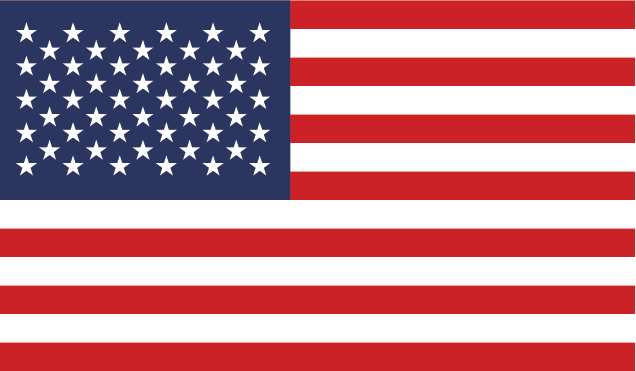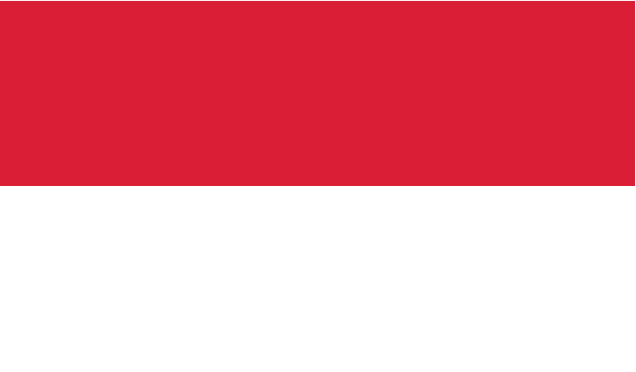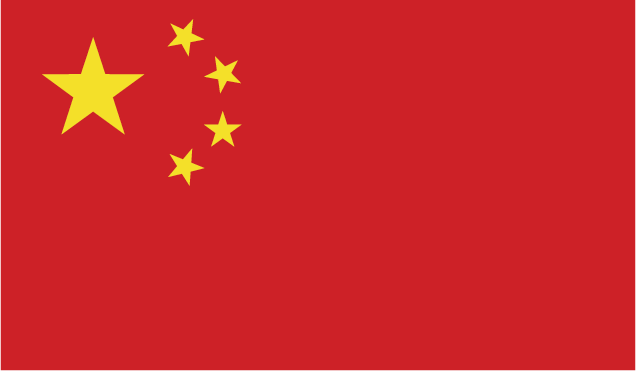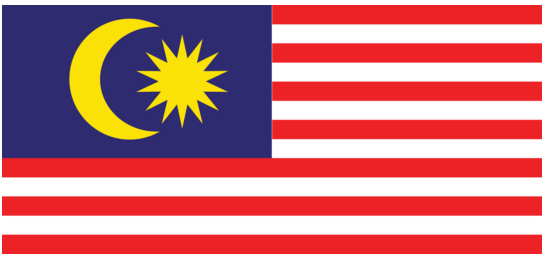The Role of Social Media in Boosting K-Beauty Sales in Indonesia
Impact of social media on K-beauty sales in Indonesia
Decoding the Allure: Indonesia's Booming K-Beauty Market
Indonesia, a land of opportunity, has become a pivotal battleground for Korean beauty brands, with a market landscape that’s nothing short of electrifying. Fueled by a potent mix of economic growth and cultural fascination, the Indonesian K-Beauty scene is not just trending; it's redefining beauty standards and consumer habits.
Sizing Up the Potential: Growth Trajectory
Forget incremental gains; Indonesia's cosmetic market, with a hefty chunk claimed by K-Beauty, is charging ahead with a projected CAGR of 5.7% from 2024 to 2031. But here’s the real kicker: Indonesia’s middle class is poised to explode from 54 million to a staggering 135 million by 2030. This massive surge in purchasing power is like a rocket booster for the demand of high-quality cosmetic items, making Indonesia a must-watch market.
Why Indonesia is the Next Big Thing
Why is everyone eyeing Indonesia? Simple: its sheer size and economic dynamism make it a magnet for K-Beauty products. That savvy, urban middle class, representing 20.5% of the population, are tech-addicts, always on the prowl for innovative products, and absolutely captivated by digital marketing. They're the perfect audience for K-Beauty's cutting-edge offerings.
Skincare: The Reigning Monarch
Skincare isn't just big in Indonesia; it's colossal. This sector, currently valued at around $2 billion USD, is projected to surge with a 9.4% CAGR. The numbers speak volumes: moisturizers alone grabbed a 19.3% market share in Q3 2024, with sales hitting a whopping IDR 815.12 billion – and here is the kicker – a 27.8% jump from the previous year. It’s clear: skincare is the undisputed king.
The Korean Wave: A Cultural Tsunami
The "Korean Wave," or Hallyu, has washed over Indonesia, leaving an indelible mark on its beauty culture. Thanks to K-drama stars and pop idols, Korean skincare has become not just fashionable, but aspirational. These celebrities are more than just faces; they're the gatekeepers to a beauty ideal that's captivated the Indonesian audience.
Social Media: The Game Changer
In Indonesia, social media is more than just a platform; it's the epicenter of K-Beauty marketing and sales. Instagram , for example, is where the magic happens. Consumers flock to these platforms to get the lowdown on skincare benefits and real user reviews. Brands like Innisfree aren't just posting; they're weaving engaging narratives through feeds, stories, reels, and live streams—effectively guiding consumer behavior and driving purchase decisions.
To sum up, the K-Beauty market in Indonesia isn't just growing; it's evolving at lightning speed. It's fueled by a rising middle class, powered by digital innovation, and inspired by a fusion of local and international beauty trends. Social media sits at the heart of this transformation, making it the perfect place to dig deeper into how these platforms shape the beauty industry’s future.
The Undeniable Power of Social Media on Indonesian Consumer Choices: The K-Beauty Phenomenon
Social media isn't just a passing fad; it's a major force reshaping how Indonesian consumers, particularly within the buzzing K-Beauty market, decide what to buy. It’s a complex dance of celebrity power, influencer sway, and authentic voices that's profoundly altering consumer behavior. Let’s unpack this.
The Celebrity Halo Effect: Endorsements That Sell
Celebrity endorsements aren't just about pretty faces; they're about sparking desire and driving sales. Take, for instance, Innisfree 's strategic collab with Kim Mingyu of SEVENTEEN. The result? A noticeable surge in brand awareness and sales across Indonesia. One study even suggests that Mingyu's endorsement alone swayed purchase decisions for a staggering 60.9% of @innisfreeindonesia's followers2. It's clear: a celebrity endorsement, done right, can be pure gold.
Influencer Marketing: The Modern-Day Word-of-Mouth
Influencer marketing is the new, refined, and digital version of word-of-mouth. K-Beauty brands are actively teaming up with both local and international influencers who command a loyal following on platforms like Instagram and Facebook. These influencers aren't just pushing products; they're sharing real experiences, creating in-depth reviews and tutorials that resonate with their audience. This authenticity builds trust and, ultimately, drives conversions. Local beauty influencers often collaborate with brands like Wardah and Mustika Ratu, promoting halal and locally relevant products that hit just the right note with Indonesian consumers1.
User-Generated Content: The Voice of the People
In the age of social media, consumer voices are the loudest. User-generated content (UGC) – honest reviews, real-life testimonials, and compelling before-and-afters – is paramount for Indonesian consumers. They seek out these peer-to-peer perspectives on platforms like Instagram and Facebook before making a final decision. This is powerful stuff because it's genuine and relatable, unlike traditional marketing. The surge in moisturizer sales in Indonesia, for instance, can be partly attributed to the sheer volume of UGC showcasing skincare routines and favorite products3. The real power, you see, lies in the hand of the consumer.
Local Platforms: Where E-commerce Meets Social
Let's not forget the local powerhouses! E-commerce platforms like Shopee and Tokopedia aren't just marketplaces; they're integrated social hubs. Consumers can engage with other users, read reviews, and watch demos—all before they hit that “buy” button. The added convenience of services like Gojek delivering your coveted K-Beauty haul in a flash only sweetens the deal1. It's all about the seamless experience.
Personalization and Engagement: Building Lasting Connections
K-Beauty brands aren't just selling products; they're building relationships. Brands like Sociolla leverage data to understand consumer preferences, tailoring their offerings to meet individual needs. This targeted personalization, combined with authentic content, creates a strong bond between brand and consumer. Sociolla's omnichannel strategy, blending online and offline stores, means consumers receive a consistent and personalized experience wherever they shop4. It's not just about the product; it's about the connection.
In conclusion, social media has become an indispensable tool for K-Beauty brands in Indonesia, wielding influence at every stage of the consumer's purchase journey. From celebrity-driven campaigns and influencer recommendations to user-generated reviews and personalized brand interactions, social platforms are the new battleground for market share and brand loyalty. As the Indonesian market continues its upward trajectory, the power of social media will only become more critical in shaping the future of the K-Beauty industry. It's not just about what you sell, it's about how you connect.
Case Study: How Brand Ambassadors are Revolutionizing K-Beauty Sales
The surge in K-Beauty sales in Indonesia, especially through the lens of social media, is undeniably linked to the influence of strategic brand ambassador partnerships. A prime example? Innisfree’s savvy collaboration with Kim Mingyu of the K-pop sensation SEVENTEEN.
Innisfree & Kim Mingyu: A Match Made in Marketing Heaven
Innisfree, a titan in Korean skincare, made a brilliant move appointing Kim Mingyu as their Global Brand Ambassador. This wasn't just a random celebrity endorsement; it was a calculated decision. Mingyu's vibrant energy and charisma flawlessly mirrors Innisfree’s brand ethos, creating a powerful connection with Indonesian consumers. One study zeroed in on Innisfree's Instagram followers (@innisfreeindonesia), revealing that a staggering 60.9% of purchase intentions were directly swayed by Mingyu's ambassadorship. The remaining 39.1%, were, well, influenced by things outside this study's scope. 2
Riding the Korean Wave to Success
The triumph of this partnership is fueled by the ever-growing Korean Wave (Hallyu) in Indonesia. Korean celebrities and K-pop idols have become cultural icons, their endorsements carrying serious weight. Innisfree cleverly tapped into this cultural phenomenon, aligning with the desires and preferences of Indonesian shoppers, particularly the younger generation who are hardcore K-pop and Korean culture enthusiasts.
Social Media: The Amplification Engine
Instagram is the unsung hero in Innisfree's marketing playbook, amplifying Kim Mingyu's impact. Through a mix of posts, stories, reels, live streams, and ads, Innisfree has cultivated genuine engagement with its followers. The brand's official Instagram account, boasting over 342,000 followers, is a testament to this. This platform has been pivotal in showcasing products and promoting the brand in a way that feels authentic and captivating. 2
Data-Driven Decisions: The Smart Play
The study on Kim Mingyu's influence also underscores the importance of data-driven strategy. By crunching the numbers from follower responses, Innisfree can fine-tune its promotional tactics. It’s like having a cheat sheet, ensuring that the brand's message hits the right note with its target audience, resulting in more effective campaigns and fatter sales numbers.
What This Means for K-Beauty, and Beyond
Innisfree's collaboration with Kim Mingyu serves as a blueprint for other K-Beauty brands hoping to harness the power of brand ambassadors in Indonesia. It demonstrates the need to pick ambassadors who not only look good but also resonate deeply with the target audience and embody the brand’s core values. Furthermore, it emphasizes the vital role of social media in amplifying the ambassador’s influence, ultimately driving both customer engagement and purchase decisions.
In conclusion, the Innisfree and Kim Mingyu saga showcases the undeniable power of brand ambassadors in boosting K-Beauty sales in Indonesia. By intelligently using social media, capitalizing on cultural trends, and backing it all up with data-driven decisions, brands can construct marketing strategies that resonate with consumers on a profound level, leading to major growth in the market.
Strategies for Dominating Social Media in the Indonesian K-Beauty Arena
In Indonesia's hyper-competitive K-Beauty landscape, a robust social media strategy isn't just an option—it's the only way to truly break through the noise and drive those all-important sales. Forget generic posts; we're talking about surgical precision and laser-focused tactics. Here's how K-Beauty brands can leverage social media, not just participate, but absolutely dominate.
The Power of the Micro-Influencer
Think of micro-influencers not as "small-time" but as your brand's highly-engaged special ops team. Unlike macro-influencers with their vast but often diluted reach, micro-influencers offer higher engagement and laser-targeted demographics. Partner with those who live and breathe skincare – the ones whose followers actually care about genuine reviews and real-life experiences. Look at Wardah and Mustika Ratu; they didn't become the local giants by chance. Their savvy collaborations with local micro-influencers, those who deeply understood their halal and culturally relevant products, sparked both brand loyalty and serious sales. It's about authenticity, not just reach.
Content That Feels Real, Not Forced
Authenticity isn’t a trend; it's the new standard. Your content needs to feel genuine, relatable, and grab the scrolling thumb. User-generated content (UGC) is your secret weapon: real people, real results. Forget staged photoshoots. Encourage your customers to share their skin journeys, favorite products, the good the bad and the ugly…it builds trust, period. For example, that moisturizer craze in Indonesia? It was fueled by a tsunami of UGC showcasing real skin transformations, not some studio magic. Let the proof speak for itself.
AI: Your Personalization Powerhouse
Personalization is no longer a “nice to have”; it’s table stakes. Leverage the power of AI to really understand what your consumer's craving. Sociolla gets it. They use data to craft personalized experiences both online and offline, ensuring consistent and relevant interactions that cultivate brand loyalty and drive repeat purchases. It’s not about guessing what they need; it’s about knowing.
Local is the New Global
Don't ignore the local heavy hitters. Shopee and Tokopedia aren't just marketplaces; they're social hubs. Consumers are interacting, reading reviews, watching demos, all on one platform. Make sure your brand is there, front and center, making the entire shopping experience seamless and hassle free. The speed of delivery with services like Gojek makes shopping on these local platforms even more appealing, and for you, it's a clear pathway to reach a wider audience.
Data: The Compass That Guides Your Strategy
Data-driven decisions are the cornerstone of an effective strategy. Analyzing consumer behavior and engagement metrics is the only way to fine-tune your marketing efforts. Take note of Innisfree's study on Kim Mingyu's impact as a brand ambassador—it's an example of the incredible power of data. Use this kind of deep insight to optimize your promotions and ensure your message resonates, not just echoes.
The Omnichannel Imperative
Your consumer's experience needs to be seamless, regardless of how they engage with your brand. An omnichannel strategy, like the one successfully employed by Sociolla, makes sure that your message is consistent across all touchpoints. This approach creates brand loyalty and makes shoppers come back for more; integrating both physical and online stores so customers have the option to shop where they are comfortable, or to explore.
In short, social media mastery in the K-Beauty sector in Indonesia is a cocktail of micro-influencer engagement, genuine content creation, data driven personalization, and seamless omnichannel presence. Implement these, and you’ll not only build market share but build lasting connections with your consumers. Forget fleeting trends; we're talking about creating a brand legacy.
Cracking the Code: Gen Z Loyalty in Indonesia's K-Beauty Scene
In the whirlwind world of Indonesian K-Beauty, securing Gen Z's loyalty is the holy grail for sustained success. This generation, digital natives with a discerning eye, demands a sophisticated approach – one that blends genuine connection, radical transparency, and a touch of hyper-personalization. Let's dive in.
The Undeniable Power of Authenticity
Forget the glossy, generic ads – authenticity is the bedrock of any successful Gen Z strategy. They possess a finely-tuned "BS detector" and can spot inauthenticity a mile away. K-Beauty brands must craft real, relatable, and frankly, human content that truly resonates. User-generated content (UGC) is pure gold here. Think real-life testimonials, unfiltered reviews – the kind of stuff that builds trust way better than traditional marketing ever could. Take, for example, the moisturizer craze in Indonesia; it's largely fueled by countless UGC showcasing skincare rituals and favorite products – a testament to the power of peer-to-peer influence 3.
Transparency: The New Black
Transparency isn't just a buzzword; it's a prerequisite for Gen Z's loyalty. They demand to know everything: ingredients, ethical sourcing, and manufacturing processes. Brands that wear their values on their sleeves, like Wardah, which spearheaded the halal cosmetics movement in Indonesia, are reaping the rewards. By proudly labeling their products as halal, and clearly outlining the benefits and ingredients, Wardah has not only gained the trust but also secured the loyalty of a significant segment of the Muslim community in Indonesia 1.
Hyper-Personalization: The Key to Their Hearts
Hyper-personalization isn't a nice-to-have; it's essential for forging lasting connections. Brands like Sociolla have nailed this, leveraging data to understand consumer preferences and tailoring their offerings accordingly. By meticulously tracking user behavior, preferences, and even beauty profiles, Sociolla is able to predict what products their customers might love and then offering personalized recommendations. This ensures each individual feels genuinely seen and understood, fostering deeper engagement and rock-solid loyalty 4.
Local Relevance: A Cultural Embrace
Indonesian Gen Z consumers are deeply connected to their culture and values. Brands that weave local nuances into their products and marketing will gain major traction. Local giants like Wardah and Mustika Ratu, for example, have become household names by offering culturally relevant products specifically designed for Indonesia's unique climate and dermatological needs. This cultural alignment is the secret sauce for forging strong emotional connections 1.
Social Media: The Battleground for Attention
Social media isn't just an option; it's the only way to reach Indonesian Gen Z. Instagram, Facebook, and local titans like Shopee and Tokopedia are where they live and breathe. Brands must create captivating content: tutorials, reviews, and authentic behind-the-scenes stories. Innisfree, for instance, has masterfully leveraged Instagram features such as feeds, stories, reels, and live streams to engage followers and drive purchase decisions 2.
The Art of Balance: Brand and Demand Marketing
To build unwavering loyalty, K-Beauty brands must master the art of balancing brand and demand marketing. Brand marketing, focusing on awareness and affinity, is crucial for long-term success, while demand marketing, driving immediate sales, keeps the lights on in the short-term. A well-crafted mix of promotional strategies – celebrity endorsements, influencer collaborations, and hyper-personalized content – will ensure that your brand remains top-of-mind and also encourages sales.
In conclusion, winning the loyalty of Gen Z in Indonesia's competitive K-Beauty market requires a multifaceted strategy – one that's built on a foundation of authenticity, transparency, hyper-personalization, and local relevance. By harnessing the power of social media, understanding consumer data, and embracing cultural values, K-Beauty brands can forge unbreakable bonds with their audience, ensuring long-term loyalty and explosive growth.
Navigating the K-Beauty Social Media Maze in Indonesia: Challenges & Future Trends
The Indonesian market for K-Beauty, while a goldmine, isn't without its tricky bits. To stay ahead, brands need to master the art of navigating these hurdles and riding the wave of change.
Algorithm Acrobatics: Adapting on the Fly
One of the biggest headaches for K-Beauty brands? The ever-shifting sands of social media algorithms. Platforms like Instagram and Facebook tweak their rules constantly, which can throw a serious wrench into content visibility. Picture this: a sudden algorithm shift favoring family photos over brand posts – organic reach tanks, and suddenly you're looking at boosting those paid ads just to stay on the radar. Brands need to be like chameleons, adapting quickly to keep their visibility strong2.
The Authenticity Imperative: Keeping it Real
Gen Z in Indonesia? They're not buying into fake. They've got a radar for inauthenticity, and any whiff of it can crush trust and loyalty faster than you can say "skincare routine." Brands need to be the real deal – content needs to feel genuine, relatable, and totally upfront about ingredients, manufacturing, and all that good stuff. Brands like Wardah get it right; they nail the halal certification and local vibe, which is why they're a total hit1.
Cultural Nuances: Tread Lightly
Indonesia's a melting pot of cultures, mainly Muslim, making cultural sensitivity non-negotiable. Marketing needs to be spot-on; respectful and relevant to local customs and values. Halal cosmetics, for example, are huge, and those who embrace it, like Wardah, are seriously cashing in1.
Tech Revolution: Embracing the Future
The future? It’s all about AI, AR, and VR. Early adopters will be able to create personalized and immersive brand experiences. Think AI that suggests the perfect product match, or AR that lets you virtually try on makeup – we’re talking next-level engagement and serious sales conversions4.
E-Commerce Harmony: Streamlining the Shopping Spree
E-commerce integrated directly into social media is the new normal. Brands have to provide super slick shopping experiences across platforms like Shopee , Tokopedia, and Instagram Shopping. This means optimizing product listings, diving into live commerce, and leveraging speedy delivery options like Gojek – making shopping as easy as a few taps3.
Data Privacy: Handle with Care
As data-driven marketing becomes the standard, privacy concerns are on the rise. Brands need to be transparent and responsible with consumer data, sticking to local rules and best practices. This builds trust and paints you as the good guy.
Live Commerce: The Power of Real-Time
Live commerce is the hot ticket in K-Beauty. Live sessions showcasing products, answering questions, and dropping exclusive deals create a sense of urgency. It’s like a virtual shopping party, plus it gives brands real-time feedback to help them fine-tune their marketing strategies and ensure customers are happy2.
Ethical & Sustainable: Winning Hearts and Minds
Consumers are getting way more eco and socially conscious. K-Beauty brands need to shout about their sustainable practices, eco-packaging, and ethical sourcing. It's a big deal for Gen Z, who demand more from the brands they buy from.
In conclusion, while social media marketing for K-Beauty in Indonesia throws a few curveballs, it's also a playground for innovation and growth. Brands that adapt quickly, embrace new tech, and prioritize authenticity, transparency, and cultural awareness will be the ones winning the game. And as the Indonesian K-Beauty market continues its meteoric rise, those proactive brands will be the ones to capture a substantial slice of this lucrative pie.
Revolutionizing Social Media Marketing with PONGO
Transformative Solutions for Evolving Markets
PONGO TECH stands at the forefront of social media marketing, offering transformative solutions that align perfectly with the dynamic nature of the K-Beauty market in Indonesia. As discussed in the article, the power of social media in influencing consumer behaviors is undeniable, and PONGO excels in enhancing this influence through innovative strategies like influencer partnerships and data-driven content creation. By leveraging our profound understanding of the Southeast Asian market, we ensure your brand message resonates authentically with local audiences.
Why Partner with PONGO?
PONGO is not just a service provider; we are your strategic marketing partner. With a proven record among top global brands such as TCL and Haier, our team of digital marketing experts brings unparalleled experience and local insight. Our success stories include significant market penetration and brand loyalty achievements through tailored social media campaigns. Partnering with PONGO means accessing an influential network that maximizes your brand's potential in a competitive landscape.
Solving Real-World Challenges
The challenges of navigating social media marketing complexities are met head-on by PONGO's expertise. Our data-driven strategies and dedication to transparency and authenticity enable brands to overcome barriers and effectively engage with Gen Z consumers. With PONGO, you are equipped to tackle the intricacies of emerging market trends and seamlessly adapt to technological advancements that shape social media dynamics.
Take the Next Step
Ready to elevate your brand's social media presence in Indonesia? Connect with PONGO TECH to discover how our innovative marketing solutions can transform your business. Contact us today here and start your journey towards unparalleled market success in Southeast Asia.






One thought on “The Role of Social Media in Boosting K-Beauty Sales in Indonesia”